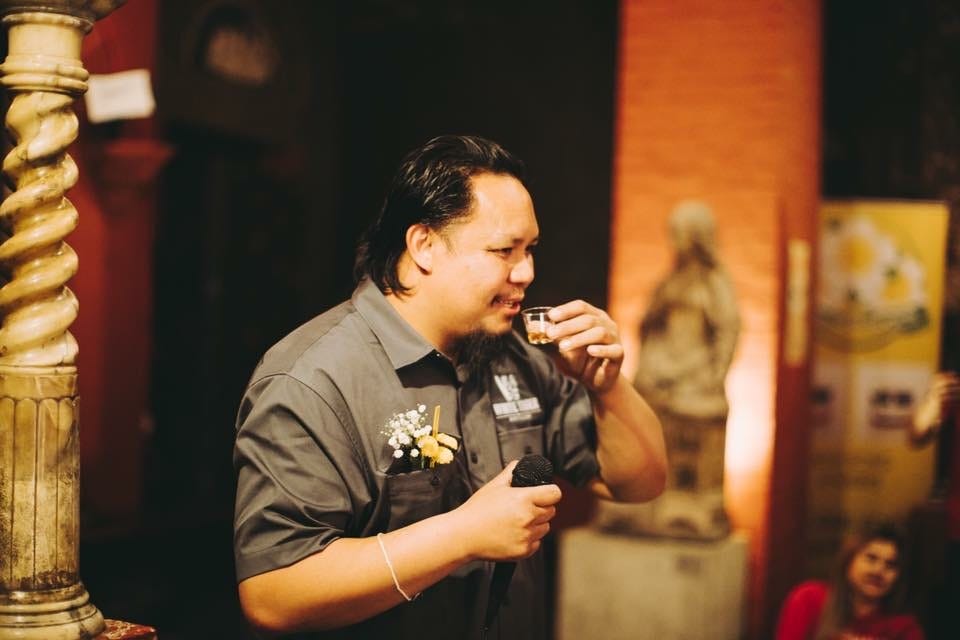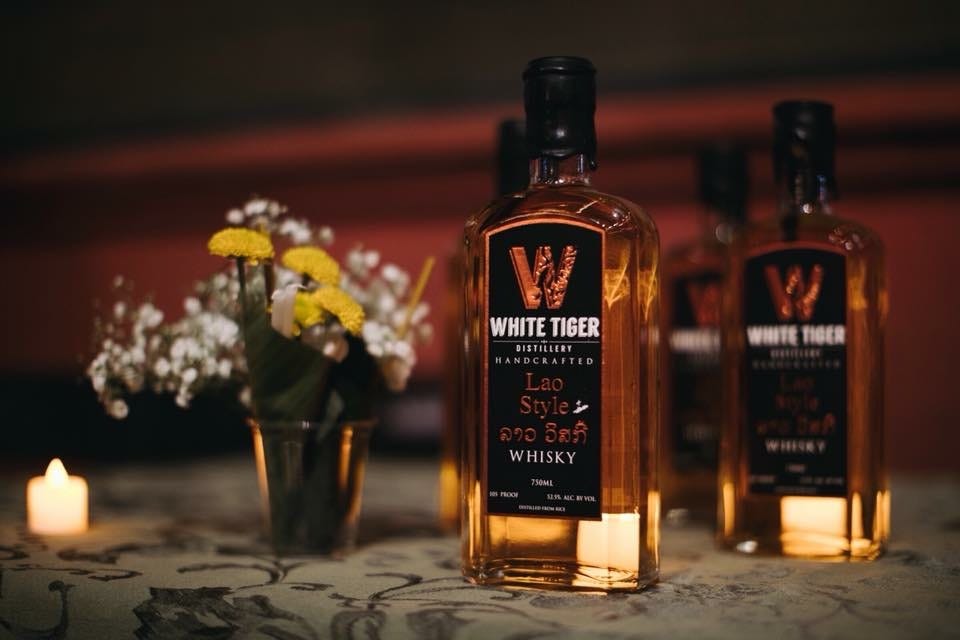Corona? No thanks, I'll have a lao lao
Hello friends!
Another brilliant dispatch from our writer in Laos. The country’s famous lao lao rice whisky churns stomachs and wets the whistle in equal measure but has now found a new purpose — hand sanitizer for frontliners in the US.
US readers can pick up their own White Tiger sanitizer directly from the Maryland distillery’s site.
If you like this story as much as I do, give it a share:
See you next week,
Erin Cook

Itsara Ounnarath samples his wares (c/o White Tiger)
The first time Itsara Ounnarath tasted lao lao, Laos’ powerful rice whisky, he had a thought that was perhaps unique in human history: Man, that was smooth.
“At first, I thought the alcohol content was low,” he said. “My mom said, oh, it’s high. Trust me.”
His mom would know: She’d brewed the batch, based on the recipe she learned growing up in Laos.
Ounnarath, who’s Lao-American, took the recipe and ran with it. In 2015, he opened up White Tiger, America’s first-ever lao lao distillery, in the Atlantic-coast state of Maryland. His mission: to introduce Lao whisky to the American palate.
He was making progress — until March, when COVID-19 began to surge in Maryland. Ounnarath had to close his tasting room to the public. Booze production was tapered down to small batches.
Then he heard about all the local stores running out of hand sanitizer. He heard there wasn’t even enough for first responders.
He turned to his casks of ageing liquor and thought, can’t I make sanitizer out of this stuff?
Indeed you can.
***
Here in Laos, not everyone drinks lao lao, but pretty much everyone has an opinion about it. To many foreigners, the mere mention of the stuff will trigger a gag and grimacing remembrance of hangovers past. Many Lao men, by contrast, consider it a symbol of male society — of time spent with the dudes, passing a single glass around and laughing raucously into the night. Consequently, some Lao wives and grandmas view it more as a symbol of reckless excess.
Lao lao evokes strong reactions precisely because it is so strong. At 120-150 proof — the exact potency depends on the maker — it rivals the great moonshines of the world. Its sweet, sugary scent belies the experience of consuming it: first tart, then acrid, with the power to roast your throat if you drink without conviction. While there are many varietals of lao lao, nearly all of them made in family homes, seldom is it described as smooth.
Yet in a way, lao lao represents the real Laos. Every tourist in this country will at some point encounter Beer Lao. But lao lao is the currency of the private Lao world. It’s the drink of intimate friends who’ve known each other since school, of mechanics kicking back after work, of villagers toasting a special occasion.
Beer Lao may be Laos’ most famous beverage, but lao lao is the cheapest and the most consumed. It is a lucky falang who’s invited into someone’s home to join a bunch of smiling guests and pass around a glass of the family brew — which may be infused with anything from olives and wood to snakes, bees or lizards.
The upshot is that if you’ve lived in Laos for a little while, you may not love lao lao, but you know it when you see it.
Last month, my friend handed me a bottle of “75% alcohol” she’d just bought. The chintzy bottle and labelling struck me as suspect. “Smell it,” she said with a grin.
The unmistakable scent of lao lao.
***

(c/o White Tiger)
According to the World Health Organisation, consuming high-strength alcohol does not cure coronavirus (thanks), but “alcohol (at a concentration of at least 60 percent by volume) works as a disinfectant on your skin.”
The only question left was whether lao lao met that exacting standard.
I looked everywhere and found probably one of the only people in the world who’d know.
Ounnarath served in the US Army for 20 years. He was on the edge of retirement, pondering his next move when he came across his mom’s lao lao recipe.
He retired as a captain in 2017 and spent the next few years perfecting his visions of the signature Lao spirit. He aged it in oak barrels, giving it an amber hue. He blended it with bourbon. For the traditionalists, he sold a crystalline lao lao with a strapping 120 proof.
This year, all of his booze became feedstock for his new product: hand sanitizer.
“A little bit of tears came out of my eye, a little bit,” he chuckled. “But it was for a good cause.”
Technically, the sanitizer isn’t lao lao. Ounnarath uses a WHO recipe with three ingredients; glycerol, hydrogen peroxide, and 80 percent alcohol. He buys the first two. To get the last one, he heats up his liquor, then collects the pure alcohol as it evaporates.
“Once you got the high-proof alcohol, we basically just blend everything together with the other two ingredients,” he said. “Blend it really good and that’s it.”
He estimates White Tiger has produced about 8,000 gallons of hand sanitizer since March. It has donated or sold the product to local hospitals, fire departments and police. Demand is as strong as ever, but he’s gone through all his booze. White Tiger is now buying pure alcohol to keep production going.
Bottom line: Can lao lao work as a disinfectant? Dubious.
But a professional can make hand sanitizer out of it. If you need to clean your hands, use something made by a pro.
Better yet, just wash your hands with soap — and save the lao lao for happier days.

